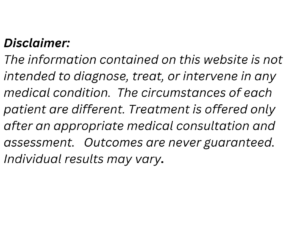Migraine is more than just a headache.
If you have ever experienced a migraine and headache, you understand how debilitating it can be. According to the American Migraine Foundation, “Migraine is a genetic nervous system disease passed on through families. If one or both parents have migraine, their child has a 50%–75% chance of getting it too. However, you can still have migraine if it doesn’t run in your family.”
A 2021 study by the National Library of Medicine stated that Migraine and severe headaches are a serious public health issue in the United States, with the highest impact in women of childbearing age and those of lower socioeconomic status. Socioeconomic disadvantages also are highly prevalent among those with headaches.
- 28 million women in the US experience migraines.
- Neurological symptoms appear in almost 20% of migraine attacks.
- More than 20% of adults suffering from chronic migraines are disabled.
- Migraine sufferers are 2 to 8 times more at risk of developing a sleep disorder.
- Less than 5% of people experiencing migraine symptoms consult a headache specialist.
- The cost of American adults getting brain scans because of their headaches is $1 billion a year.
For women and couples struggling with fertility challenges, migraines may affect fertility.
When preparing your body for conception, having migraine headaches may cause added and unnecessary stress. Infertility medications, in general, work to trigger ovulation, which may also trigger a migraine in women who are more sensitive to the hormonal fluctuations. Infertility treatments could potentially be expected to worsen migraines.
Some women who never had migraines, begin to experience them as a symptom of pregnancy, mostly due to hormonal changes. The migraines and headaches generally go away after the 2nd, and into the 3rd trimesters. It is very important that you advise your OB/GYN and or Primary Care Physician about your headaches.
Red Flag symptoms that require immediate medical attention:
- Your headache is accompanied by a fever
- Your headache persists for more than a few hours or returns frequently
- You are experiencing blurred vision
A recent publication by Pacific College of Health Sciences corroborates clinical studies which show that Acupuncture treatments were found to be beneficial prophylactically and as a treatment for migraines compared to the standard of care for migraines. Additionally, the researchers noted that acupuncture also positively affected the quality of life of the participants who received acupuncture treatments.
Studies have shown that an integrative medicine approach to treating migraine and headaches, is more comprehensive and personalized, which provides significantly improved outcomes for the patient, while minimizing the need for narcotics or other pharmaceuticals.
In Chinese Medicine, we address the root cause, treating the person, while helping to alleviate their suffering of the headache and other migraine symptoms. Your Doctor of Chinese Medicine will ask a series of probing questions such as the location of the headache, whether you have a prodrome or aura preceding the migraine episode, and any other symptoms. The location of the headache very important for diagnosis, including other details such as if you experience stomach or other GI issues. You will also be asked whether you have stiffness in your neck/neck pain, the type of pain, such as if it’s throbbing, sharp, or achy. These are important details for Chinese Medicine Diagnosis.
I suffered from chronic migraine and headaches for many years with little relief from prescribed medications. When I had an episode, I was nauseated, had sensitivity to light and sounds, and certain smells or foods would be triggers. I had bursting eye pain which felt like someone was pulling a huge metal stake from the inside of my head through my eyes. I was miserable and missed out on many social events and fun because of these debilitating episodes, which lasted for several hours, and up to a week.
Well, I stumbled upon Acupuncture and Chinese Medicine, and scheduled my first appointment out of desperation for relief from the pain and misery. My neurologist had been prescribing stronger, and stronger medications which didn’t get rid of the pain. Instead, they left me feeling groggy, fuzzy headed, uncomfortable in my body, and tired all the time. Although I was terrified to tears of needles, I was desperate to find relief, so I “tried” acupuncture, and I’m so glad that I did! And it didn’t hurt!
Hints and Tips for Migraine Relief
- Get regular acupuncture treatments for relief from migraine, headache, nausea or other symptoms
- Avoid foods with nitrates and Monosodium Glutamate (MSG)
- Add more foods like Brazil nuts and almonds, into your diet, which are high in Magnesium
- Avoid smell triggers such as perfumes and fragrances
- Get at least 8 hours of sleep
- Daily moderate exercise for 20 to 30 minutes
- Check that your Vitamin D and B levels are in typical range. These work together with Magnesium to improve circulation
- Ginger in tea, or added to vegetable stir fry, and other dishes. Fresh ginger is best. It helps to alleviate nausea which often accompanies a migraine episode
Call me! I’ll happily share how I no longer get migraines and rarely have headaches, since 2004. I am so passionate to help you get relief from migraine and headaches.
I offer You Hope.
At Red Lotus Wellness Center, we offer a customized program to help you be Free from Migraine and Headache Pain. We also offer a specialized program for those struggling with fertility and migraines. Let us help you get back to doing what you love in life, Migraine Free!
Give us a call at (760) 637-5069 or email us to see if you are a good fit for our Migraine and Headache Relief Program and we’ll be happy to have a conversation around how we may help.
References







